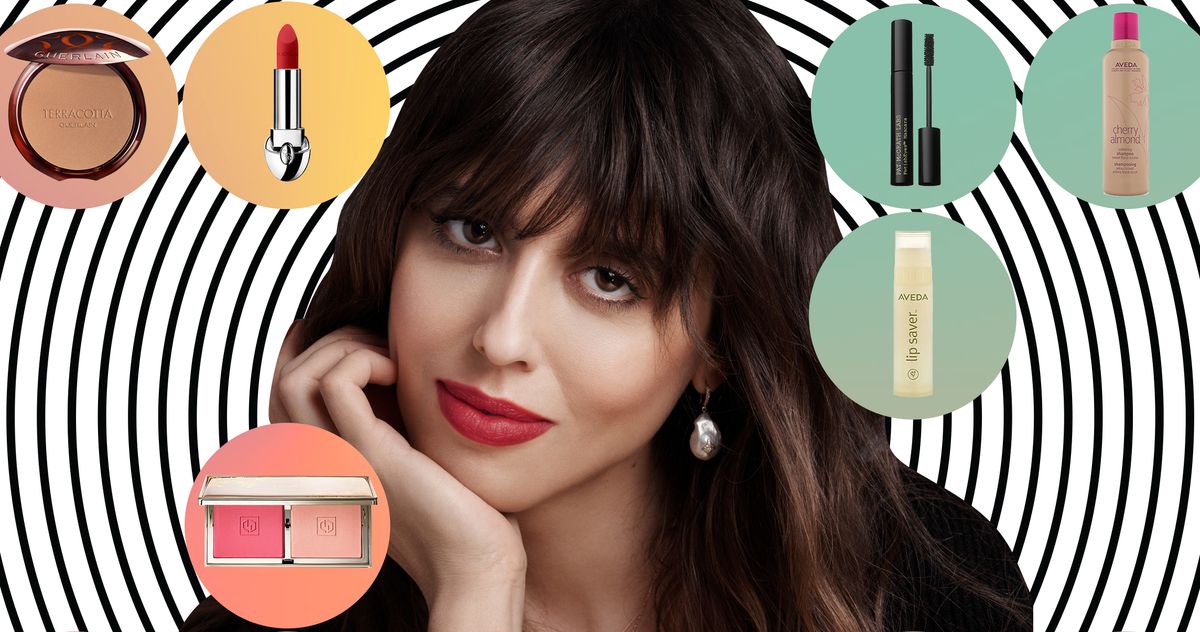Winter has its perks: celebrating the holidays, cups of hot chocolate by the fireplace, snuggling in a blanket while reading a book. While you may be ready for the coziness of the colder months, your skin likely is not. You’ve likely noticed dry, flaky skin and chapped lips no matter how much moisturizer and chapstick you apply. So what gives?
In the winter, “the air becomes colder and dryer, with less humidity, causing us to lose moisture from our skin into the surrounding environment,” explained Robyn Gmyrek, a board-certified dermatologist and clinical instructor of dermatology at Columbia University in New York City. Cold weather also means staying indoors more with our heaters on, which can dry your skin out even more.
But this isn’t the only reason our skin dries out in the winter. “In addition, pollution is worse in the winter months, which heightens the risk of free radical damage which leads to premature aging,” said Michael Somenek a board-certified facial plastic surgeon practicing in Washington, D.C. He explained that this can lead to the typical winter dry skin, but also exacerbate rashes, eczema, psoriasis, acne and rosacea.
Our bathing habits also play a role in drying out our skin in the winter. “Long hot showers feel great during the cold winter months, but may actually cause damage to the protective barrier of our skin and promote further water and moisture loss,” said Rina Allawh, a board-certified dermatologist at Schweiger Dermatology Group in Pennsylvania.
Unfortunately, other than changing your bathing habits, it’s hard to avoid the factors causing your dry skin in the winter. So what can you do to combat these winter skin woes? We’ve asked the leading professionals what they change in their skin care routine as the temperatures drop, and which products they find work best. Here is what they had to say.
SkinMedica’s TNS Ceramide Treatment Cream

The cream also contains ceramides, as suggested in the name, which helps protect the skin’s barrier from cold temperatures and free radicals in the air, as well as retain much-needed moisture.
CeraVe Daily Moisturizing Lotion

“You can never go wrong with CeraVe Daily Moisturizing Lotion for the body during the winter; it should be a staple product for any skin type,” Motykie said.
Glossier Super Glow Vitamin C + Magnesium Serum

One popular option for Vitamin C is Glossier’s Super Glow, which is safe for more sensitive skin types and contains hydrating natural ingredients like jojoba oil, sunflower seed oil and shea butter.
Dermalogica Daily Microfoliant

He recommends Dermalogica Daily Microfoliant as a chemical exfoliant. “When skin is dry, it needs to shed dead skin cells. This product is a rice-based enzyme powder that works to slough away debris from the skin’s surface for a brighter, more refreshed complexion.”
Aquaphor Healing Ointment

One of her favorite products during the winter is Aquaphor Healing Ointment, which can be used on the body and on the lips. Unlike a lotion or cream-based moisturizer, this ointment creates a thick barrier, which allows your skin to heal and retain moisture. This product can be especially helpful to wear on the lips overnight.
EltaMD UV Restore Tinted Broad Spectrum SPF 40

She suggests trying EltaMD UV Restore Tinted Broad Spectrum SPF 40.“This 100{5c5ba01e4f28b4dd64874166358f62106ea5bcda869a94e59d702fa1c9707720} mineral sunscreen contains squalane, an ingredient which restores skin’s natural moisture and suppleness,” Gymrek explained. “Not to mention the fact that it includes Vitamin C and E antioxidant protection, and ginger root extract, which improves texture and tone of the skin.”
Senté’s Dermal Repair Ultra Nourish

Osea Undaria Algae Body Oil

La Roche-Posay Lipikar Balm AP+ Intense Repair Moisturizing Body and Face Cream

La Roche-Posay’s formula is great for those with skin concerns besides dry skin. “In my eczema and psoriasis patients, I find that both products are excellent for dry, cracked skin to further supplement prescription topical steroid use. Ingredients are safe, and above all else, provide optimum hydration with minimal irritation, both of which are favorites among my skin of color patients with acne-prone skin,” Allawh said.
Neutrogena Hydro Boost Hydrating Facial Cream

Alastin Gentle Cleanser

Her recommendation is Alastin Gentle Cleaner, as it is a gel cleanser. It “foams up to remove impurities (and makeup) while also calming the skin with antioxidants. It is sulfate-free and great for sensitive skin,” she said. Since this cleanser is so gentle, it will not leave your skin dry or flaky after washing.
Skinbetter AlphaRet Peel Pads

Her go-to for exfoliating is Skinbetter’s AlphaRet Peel Pads as they “keep dead skin cells on the go and your skin a glow!” They also come in individual packages for easy application.

